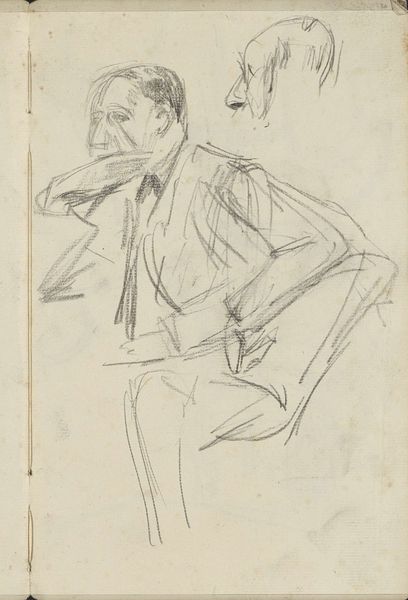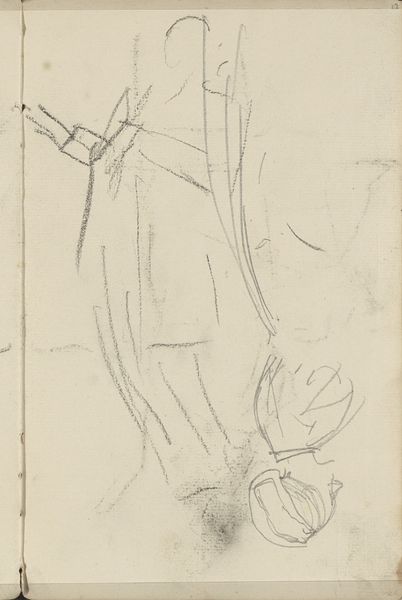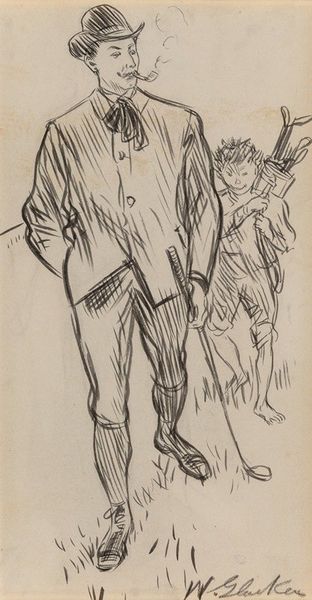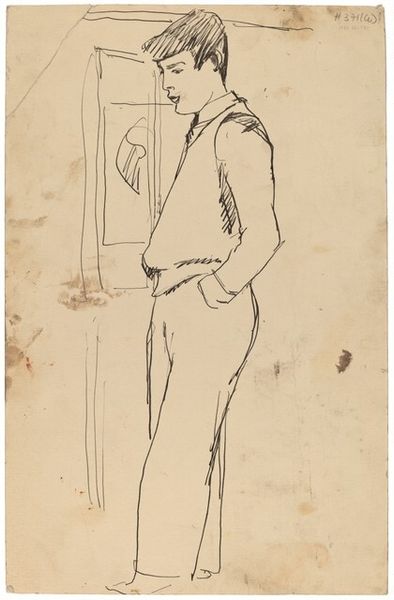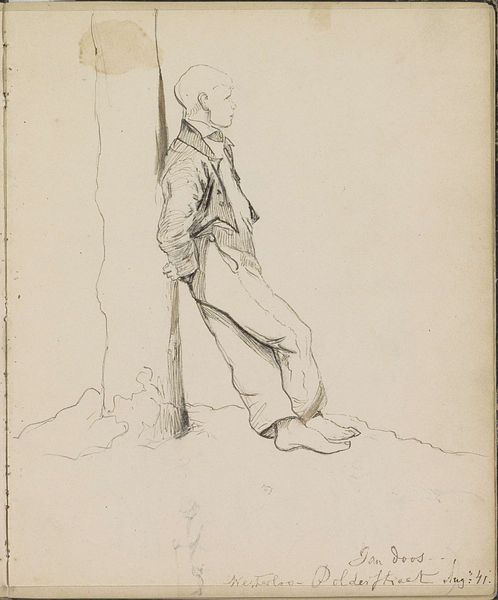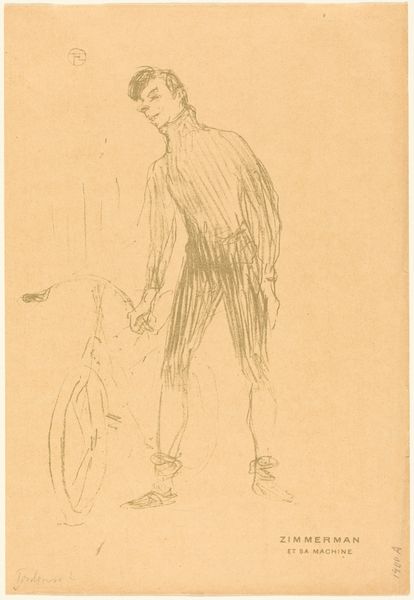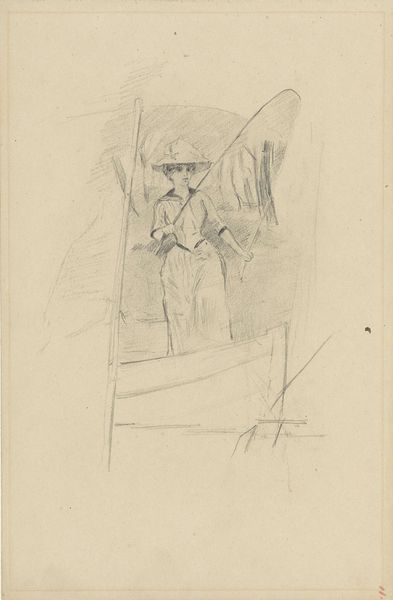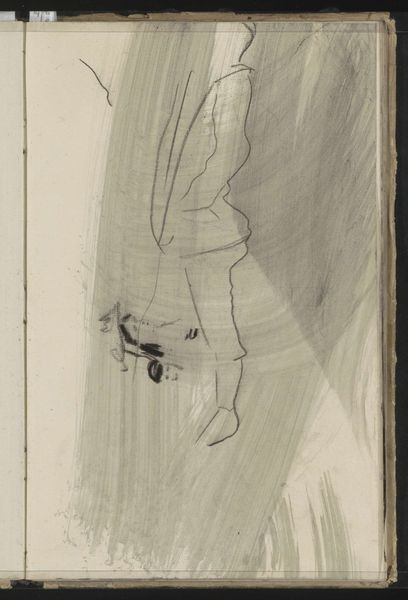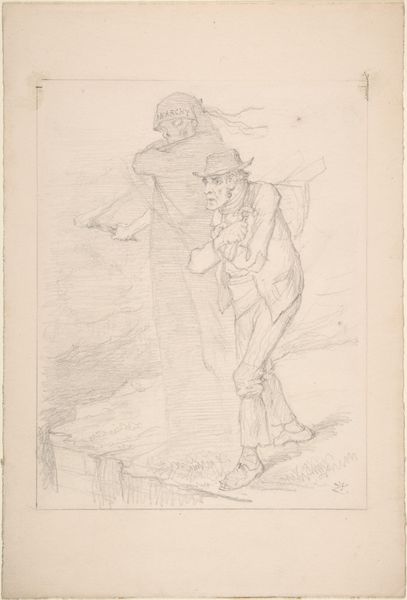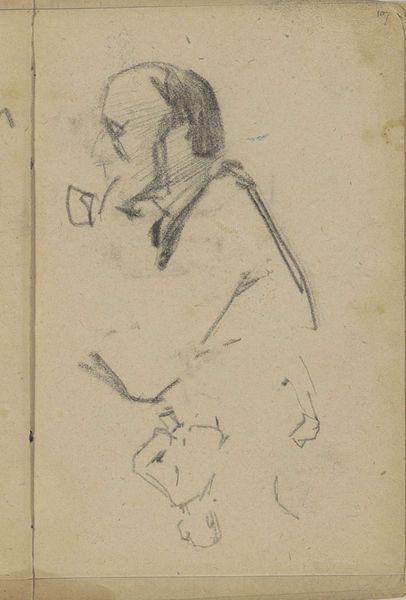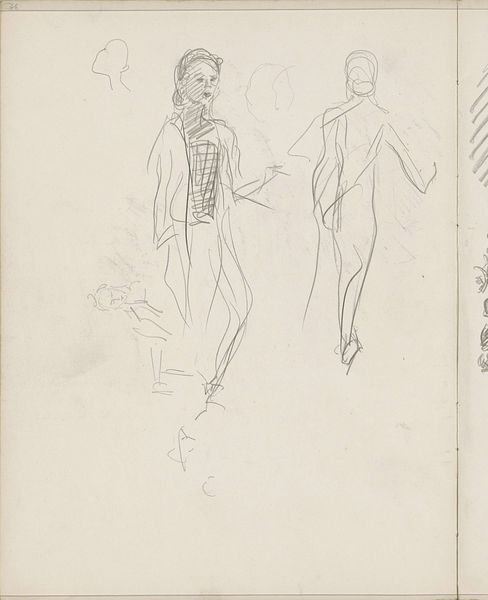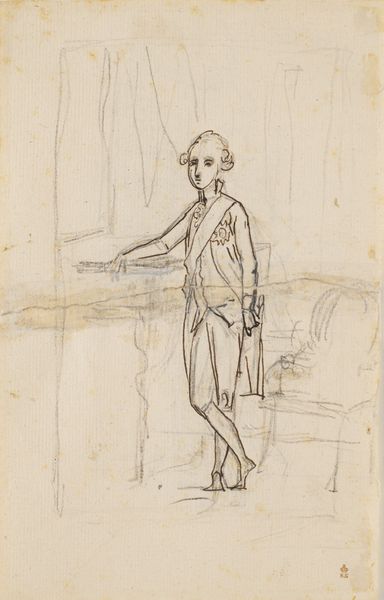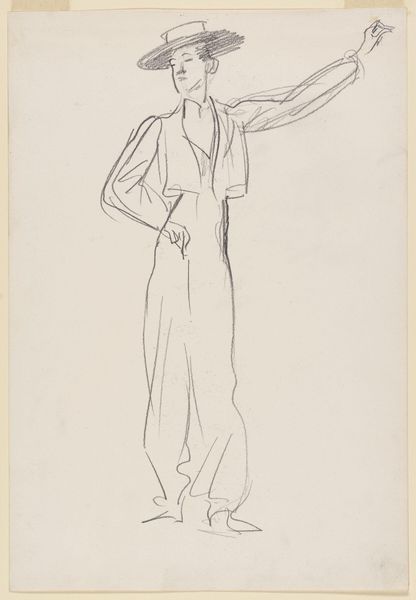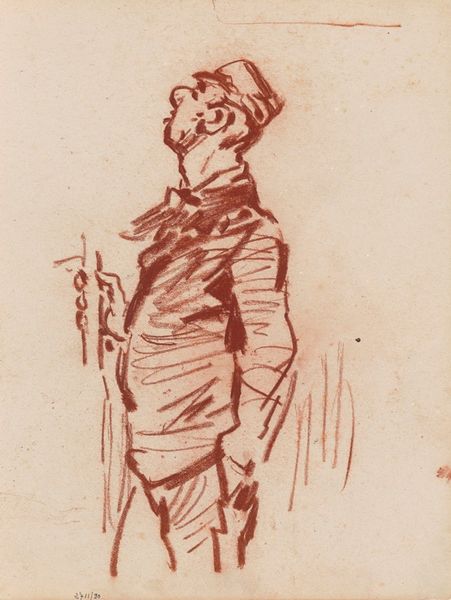
drawing, pencil
#
portrait
#
drawing
#
self-portrait
#
narrative-art
#
figuration
#
pencil
#
ashcan-school
Copyright: Public Domain: Artvee
Curator: This quick sketch, Robert Henri's Self-Portrait from 1904, captures the artist in medias res, paintbrush in hand before his easel. The medium is pencil. It offers a glimpse into the Ashcan School aesthetic he was instrumental in forming. Editor: It's an intriguing initial impression. The looseness and apparent immediacy give the feeling that we’re intruding upon a private moment. There’s something almost vulnerable about how he depicts himself. Is it just me or do you feel that his slightly caricatured rendering perhaps points toward class commentary? Curator: That's interesting to consider! It definitely carries symbolic weight to view Henri rendering himself with a sense of slight dishevelment and perhaps defiance, characteristic of his Ashcan focus. It is in stark contrast to earlier artistic tropes of portraying the self with classical precision. He's wearing the attire of his era, and in front of the canvas, presenting a vision of labor. I'm sensing also perhaps the symbolism of the bohemian ideal and perhaps its democratization of image-making. Editor: Absolutely. This feels deeply tied to Henri’s commitment to depicting everyday life, particularly the lives of working-class people. He consciously rejected the elitism he associated with the art establishment and sought to represent the reality he observed around him in New York. He really did champion the gritty portrayal of modern life as resistance to the conservative salon art of his time. Curator: And we cannot deny his awareness of composition. The artist at work has its lineage and origins. The suggestion of shadow creates a theatrical feel too. There is symbolism perhaps in the play of light. A quick glimpse suggests so much, psychologically. Editor: It's fascinating to observe how artists use self-representation as a means of control, taking ownership of their narratives. Looking closely, the drawing isn't only what Henri wants to say about himself, but is equally evocative of the artistic milieu of early 20th century New York and what Henri was trying to advocate for. Curator: I agree completely. What appears simple becomes an aperture into the artistic and social dialogues of the era. I hadn't thought about the question of ownership of narrative until you pointed it out! Editor: It's truly insightful to unpack this unassuming work. The sketch offers so much fodder for thought and questions around Henri's own identity in a moment of dramatic socio-political upheaval.
Comments
No comments
Be the first to comment and join the conversation on the ultimate creative platform.
